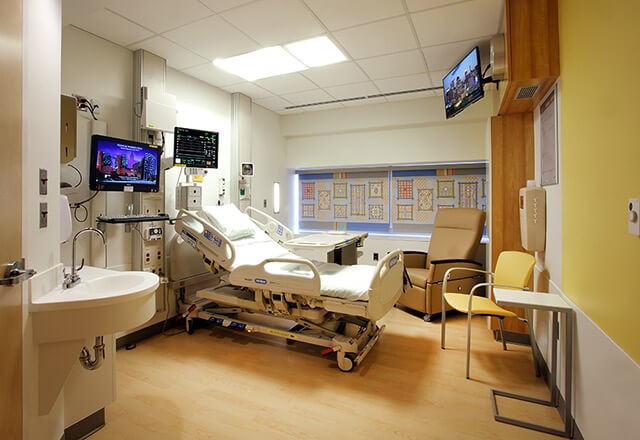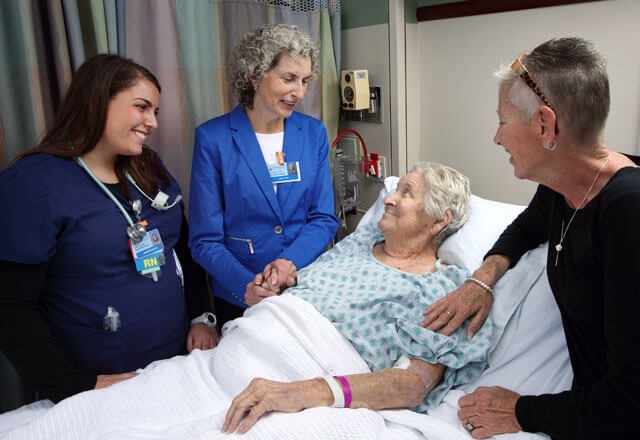Hospital Admission and Discharge
All of the staff at Johns Hopkins hospitals are dedicated to your safety, healing and comfort. Here are some tips and suggestions to help you prepare for your hospital stay.
Working With a Hospitalist
-
A hospitalist can help you by:
- Assessing and communicating any significant changes in your condition
- Communicating with your primary care physician and specialists to make sure that your treatment is coordinated
- Communicating with your health care partner to make sure they are informed of your medical condition.
- Coordinate care with the other members of your care team, including medical specialists, social workers, physical and occupational therapists, respiratory therapists and speech therapists, among others.
-
A hospitalist is present at a hospital 24 hours a day, 7 days a week. You will first meet a hospitalist when you are admitted to the hospital (typically in the morning after your admission) and will continue meeting once a day until your discharge. If you have an emergency or special needs, other members of your care team are available to visit you more than once a day.
Depending on how long you are in the hospital, you may interact with more than one hospitalist. Hospitalists review patient records with each other at the end of their weekly rotation to ensure smooth transition of care.
-
If you or your loved one need to contact a hospitalist, the communication board in your room is a great way to leave us a message for a hospitalist. Please ask a nurse for assistance. In addition, you can leave a message with your nurse who will pass it on to your hospitalist.
Your primary care physician or specialists can also contact your hospitalist to follow your progress at the hospital.






